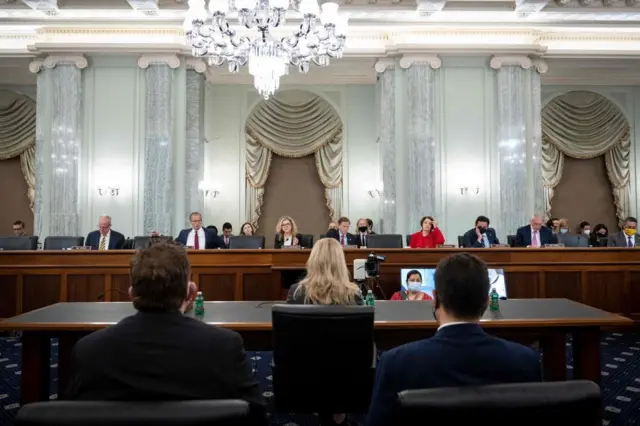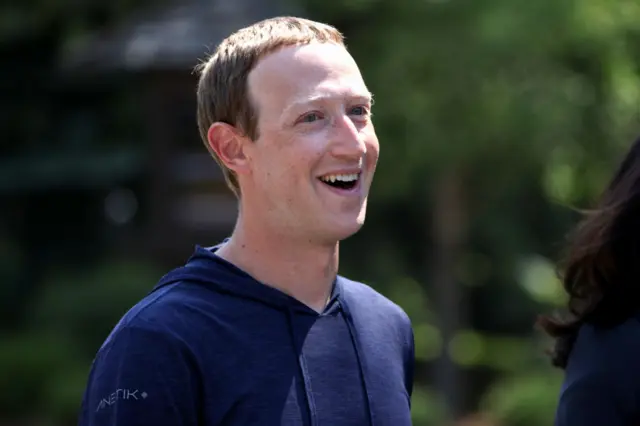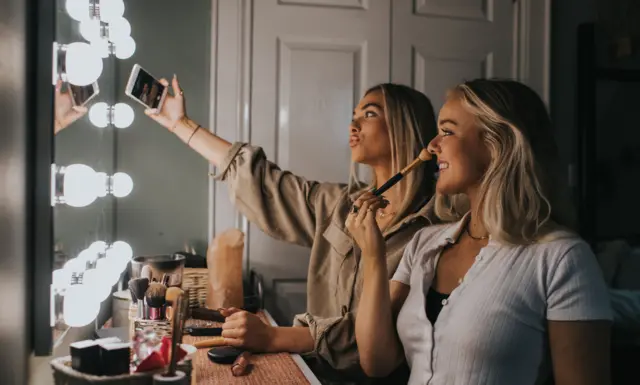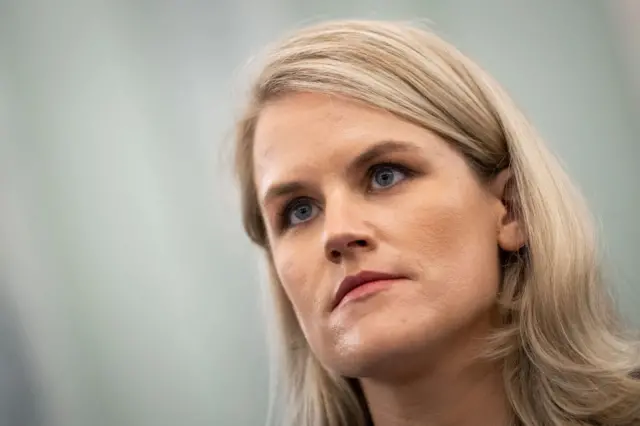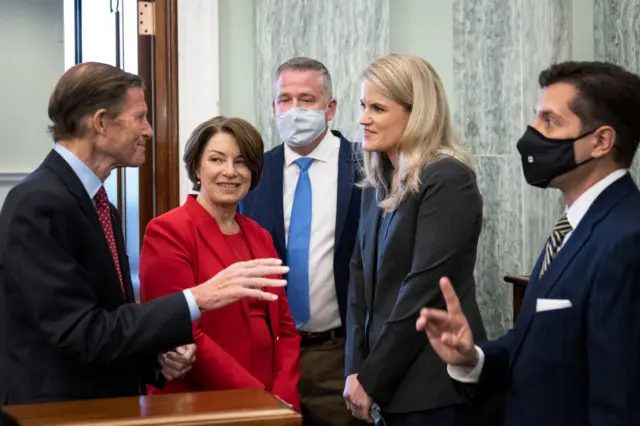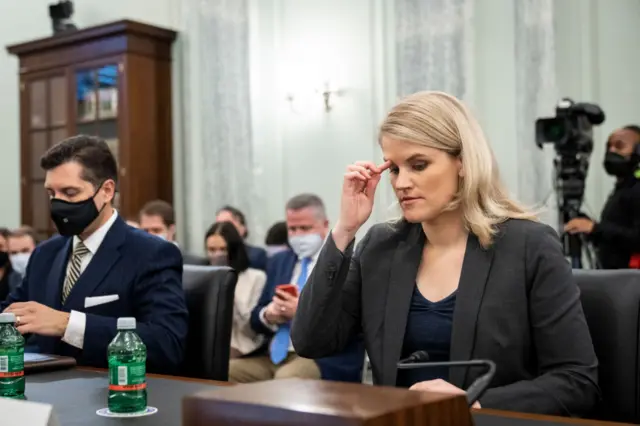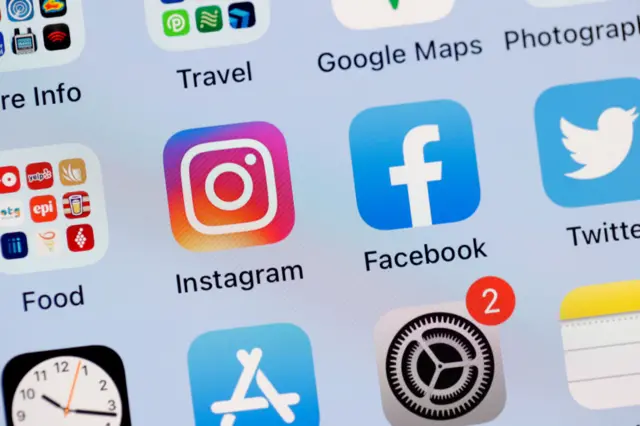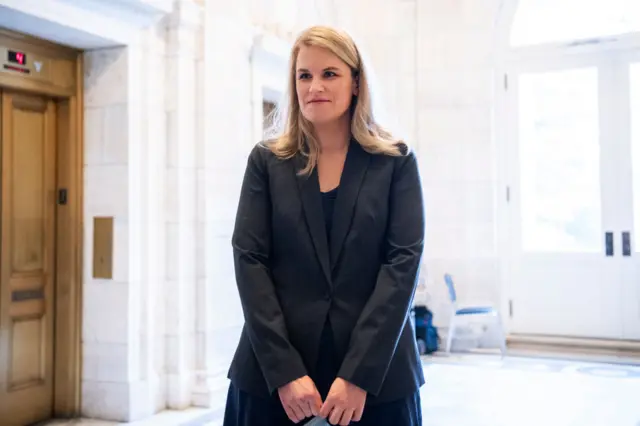Whistleblower has 'choice documents' from Zuckerberg briefingspublished at 17:03 BST 5 October 2021
 David Molloy
David Molloy
Technology reporter
Here's another key moment from just before the break.
When asked if Facebook has ever implemented a feature that would harm users, but gone ahead with it, Haugen pointed to an example of allowing people to share links without reading them.
And she said there were records of Mark Zuckerberg having made such decisions himself.
"We have a few choice documents that contain notes from briefings with Mark Zuckerberg where he chose metrics defined by Facebook like ‘meaningful social interactions’ over changes that would have significantly decreased misinformation, hate speech and other inciting content," she said.
